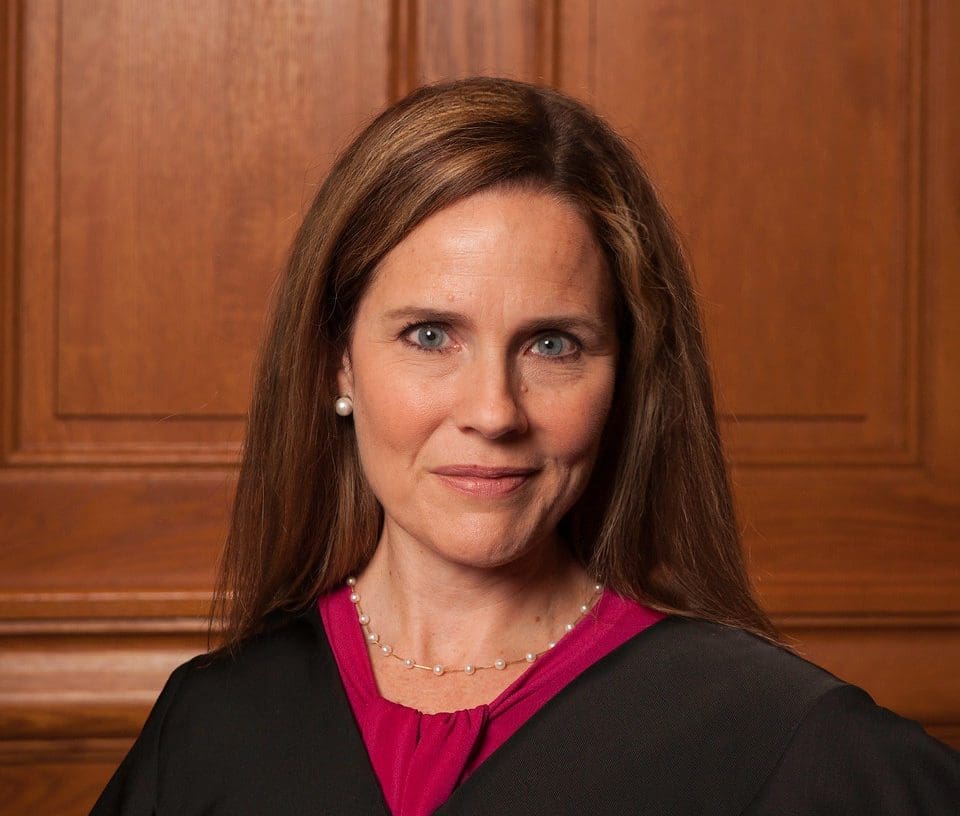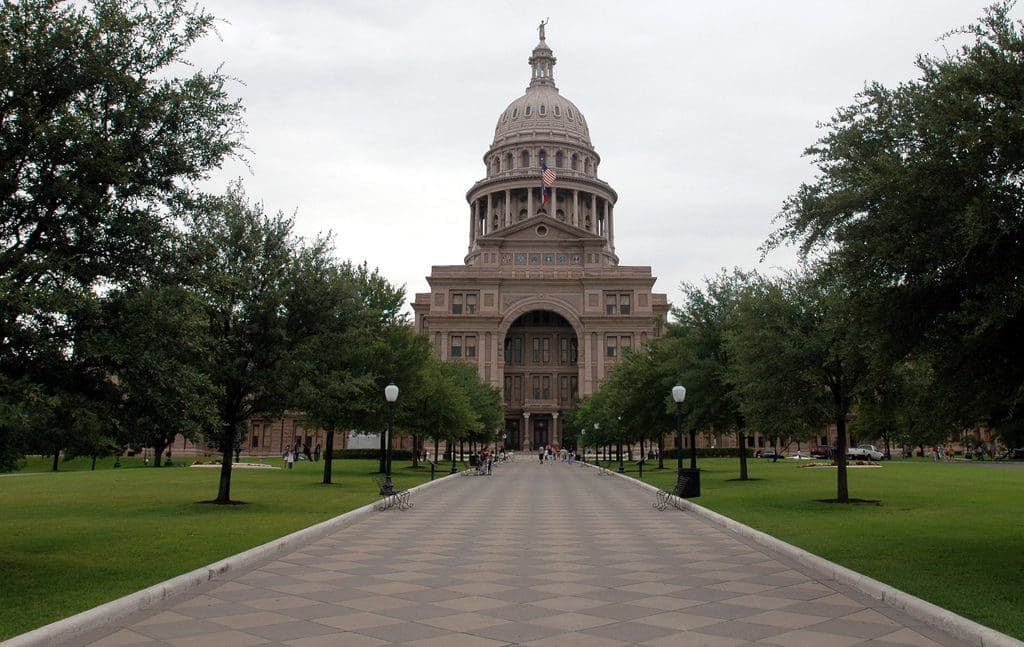Last week, the U.S. Senate confirmed Judge Amy Coney Barrett to the United States Supreme Court. And although she’s not from Texas, Judge Barrett is Texas.
It is hard to imagine another state possessing the same grit, determination, and fortitude as Texas. The lores of Texas are legendary; from famous battle cries (“Remember the Alamo”) to outlaw cowboys, the Lone Star State epitomizes the individual standing firm against all odds.
Phrases like “Texas Grit” and “Texas Tough” are common; Texans work hard and are deservedly proud. The Texas Department of Transportation registered the trademark “Don’t Mess with Texas.”
But Texas also has a sensitive side: “Friendship” is our state motto. Even our insults sound nice (“bless your heart”).
But the attacks against Barrett have been vicious. Mindless protestors draped in trite Handmaid’s Tale costumes seek to shame Judge Barrett for her faith. Some have criticized her for wearing a dress instead of a suit to her confirmation hearings.
A Boston University professor even called Barrett a “white colonizer” for adopting two children from Haiti. This same professor attacked these children too, diminishing their existence to that of “props.”
And yet, Barrett responded with grace to all of these cruel criticisms—perhaps even an unspoken “bless your heart.”
Judge Barrett’s existence undermines the lie that women have to choose between career and children. She is the mother of seven school-aged children, including one with special needs. Her confirmation last week to the United States Supreme Court represents the pinnacle of any career in law.
Simply, Barrett proves that women do not have to forego family and faith in order to achieve career success.
Barrett’s Texas-sized grit, toughness, and sensitivity will serve her well when presented with several cases that directly impact civil liberties in my home state of Texas.
Healthcare
On November 10, the Court will hear consolidated arguments in Texas v. California and California v. Texas that will decide the fate of the Affordable Care Act (ACA).
At issue is whether the individual mandate to purchase minimum essential coverage (the mandate now reduced to zero) is unconstitutional and, if so, how such ruling would affect the ACA as a whole.
Here, the question is one of severability. When questioned by the Senate Judiciary Committee, Barrett likened the issue of severability to a Jenga puzzle: “If you picture severability being like a Jenga game, it’s kind of like if you pull one out, can you pull it out while it all stands? If you pull two out, will it all stand?”
Barrett made clear that the issue of severability was designed to effectuate Congress’ intent and is a way for the Congress and the Court to work “hand in hand.” Barrett’s response was devoid of irony or snark—she calmly explained this judicial concept to a sitting senator just as easily and comfortably as she would have explained the actual rules of Jenga to one of her children.
Even continuous questions throughout the hearing regarding the ACA did not fluster Barrett; with each measured answer, she displayed patience the size of Texas.
Religious Liberty
On November 4, 2020, the Court will hear the case of Fulton v. City of Philadelphia.
In Fulton, the City of Philadelphia declined to place foster children with Catholic Social Services (CSS), an agency that has successfully operated in Philadelphia for more than 100 years, unless CSS agreed to comply with the City’s requirement to certify and place foster children in the homes of same-sex couples.
CSS stated that while it would work with single individuals who identified as LGBTQ, complying with the city’s requirement to certify same-sex couples would violate CSS’s core religious beliefs on marriage.
Interestingly, the record in Fulton states that no same-sex couples even approached CSS to become licensed foster parents.
At issue in this case is whether CSS will be allowed to provide services in accordance with its religious beliefs. This case has far-reaching implications for thousands of faith-based foster care and adoption providers throughout Texas and the United States.
Second Amendment
The Supreme Court has been reluctant to grant certiorari to new Second Amendment cases.
The Court has only heard three Second Amendment cases since the landmark 2008 case, District of Columbia v. Heller, which affirmed the right of individuals to possess firearms in their homes for lawful purposes.
The Second Amendment is a big issue to Texans. Over 830,000 firearms are registered in Texas, and according to a recent Gallup poll, 43 percent of Americans live in a household with a gun.
Amy Coney Barrett is no different. During her confirmation hearing, Barrett disclosed that she, too, is a gun owner.
During her confirmation hearing, Barrett was also relentlessly questioned about her dissenting opinion in a 2019 case, Kanter v. Barr.
In Kanter, a convicted nonviolent felon challenged a Wisconsin law that stripped him of his Second Amendment rights.
Barrett, lauded as an originalist and scholar, employed a historical approach in analyzing Kanter’s Second Amendment issue, writing that:
History is consistent with common sense: it demonstrates that legislatures have the power to prohibit dangerous people from possessing guns. But that power extends only to people who are dangerous. Founding-era legislatures did not strip felons of the right to bear arms simply because of their status as felons. Kanter v. Barr, 919 F. 3d 437, 450 (7th Cir. 2019) (Barrett, J., dissenting)
In June of this year, the Supreme Court declined to take up 10 Second Amendment cases spanning several different circuits and states. Perhaps with Barrett’s experience and comfortability with Second Amendment issues, the Court would agree to hear more Second Amendment cases in future terms.
As the newest Justice on the Supreme Court, we can look forward to Barrett’s calm analysis and well-reasoned approach to extremely tough issues facing the highest Court of our land.
And although the assaults on Barrett have been malicious and untrue, we can be grateful that the lens on Barrett has exposed a new veritas: faith, family, and career are not mutually exclusive.
Don’t mess with Justice Barrett.
This is a commentary republished with the author’s permission. If you wish to submit a commentary to Texas Scorecard, please submit your article to submission@texasscorecard.com.





